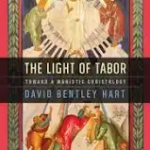The incomparable Martin Hengel begins The Atonement with a question: Did Greco-Roman culture have categories to understand Jesus’ death as an expiatory sacrifice? He answers with a dense Hengelian catalog of mythic and historical instances of the apotheosis of heroes, death for the fatherland, death for the truth, expelled pharmakoi, and he shows that these deaths “on behalf of” others were sometimes described in sacrificial terms. So, the answer is emphatically Yes. Indeed, Greco-Roman culture had categories for grasping Jesus’ death... Read more















